Home » Best Accredited Pharmacy Technician Certificate Programs
Pharmacy Technician Schools Near You Currently Accepting Applicants
ASHP Accredited Pharmacy Technology Certificate Programs - 2025

A career as a pharmacy technician can be rewarding as well as fulfilling. Many of the aspiring pharmacy technicians today, begin their career with a pharmacy technician certificate program. Graduating from an accredited certificate program and getting a PTCB certification, you can expect to earn higher than the national annual average, taking home a pay check of $33,726. To help you zero down on the best, we have listed the 9 Best Accredited Pharmacy Technician Certificate Programs in the country for the year 2025. We have also provided information about coursework, duration, cost, accreditation, outcome, salary and job outlook. View The Rankings
Why The Certificate Program Can Be Right For You?
• The program can be completed in a short duration of about 9 months and you can enter the workforce quickly
• The tuition cost is considerably less expensive
• You will be prepared to take the PTCB exam on completion of the program
• The program is offered as either an on- campus, hybrid or online option in most of the colleges
• If you wish to advance your education you can seamlessly transfer credits to earn an associate degree and save yourself time and money
All That You Need To Know About The Certificate Program
What is the duration of the program?
The certificate program usually takes 9 to 10 months (typically 600 hours of instruction and 200 hours of externship) to complete.
What are the options of study?
You can decide to choose from On-campus, Online or Hybrid mode of study. While the outcome of study is the same, each mode of study has its pros and cons; you can decide which one will work best for you.
On-Campus
On-campus mode of study is where you will be taking classes face to face, attending school on a regular basis. The following pointers will help you know if this mode of study works for you:
• It will be easier for you to stay motivated and keep up with schedules and deadlines
• Networking with batch mates and faculty can prove to be resourceful
• Cost of education will be considerably higher
• Attending classes means you may not be able to take up a day job
Online
You will be taking instructions through web-based learning if you opt for the online study. E-books and virtual discussion boards; if this sounds good to you then read on below to know about the pros and cons of this mode of study:
• You can work around the virtual classes as per your convenience
• It is comparatively cost effective as you will save on housing fees and commute costs
• If you are not a self-motivated person it may be easy to lose focus with an online mode of study
• You may miss out on valuable inputs and interactions with faculty and batch mates
Hybrid
In the hybrid Certificate course, about 300 hours will be completed online and 160 hours will be completed on-campus and as an externship/internship. This mode incorporates the best of on-campus and web-based learning. It provides flexibility as well as lab based learning, giving a clear learning outcome. However, getting used to the flexibility this mode provides, it can get difficult to keep up with schedules for some students as you will be required to attend few classes as well as take up web- based learning.
Is the program Accredited?
Accreditation of the program means it meets or exceeds minimum standards of quality prescribed by the accrediting agency. The ASHP is the accreditation agency for pharmacy technician programs. Before enrolling you need to ensure whether the program is accredited. To know whether the program is accredited you can check with the ASHP directory.
What are the advantages of accreditation?
• With the evolving and expanding world of the pharmaceutical world, an accredited program is designed to keep you abreast, thus protecting the interest of public.
• Employers prefer to hire accredited program graduates. In a recent survey 60% employers agreed to offer tuition assistance for technicians who participate in an accredited training program.
How much will the certificate program cost?
The cost of pharmacy technician certificate program will depend on various factors such as campus location, whether you are an in-state or out of state student and whether you are opting for an on-campus, online or hybrid program. The total estimated cost, including the tuition fees and other miscellaneous expenses can range anywhere from $5,674 to $15,659.
| Estimated Program Cost: | |
| Item | Estimated Cost |
| Tuition costs | $3,500 - $12,500 |
| Books and supplies | $1,500 - $2,500 |
| PTCB Exam Fee | $129 |
| CPR Certification | $25 - $80 |
| Physical Exam | $75 - $150 |
| Medical Insurance | $200 |
| Hepatitis B Vaccine Series | $120 - $200 |
| Immunization/Health Tests | $100 |
| Scrubs | $25 - $40 |
| Cap and gown fee | $35 |
How Many Schools Offer The Pharmacy Technician Certificate Program?
The following table will help you learn the number of schools offering the pharmacy technician certificate program in public, private non-profit and private for profit categories.
| School | # of institutions |
| Public | 279 |
| Private nonprofit | 57 |
| Private for-profit | 276 |
| Total No of Schools | 615 |
The Ranking Methodology - View Detailed Methodology
If you decide on pursuing the pharmacy technician certificate program, you need to decide on a school that matches your educational needs. With a number of schools offering this program, you will have to evaluate what each school offers. To start with a list of top ranked schools will not only make your decision easier but even more informed. Each school on our list is known for its commitment and success towards its students and the program. We have ranked the Top 10 Pharmacy Technician Certificate Programs (accredited by the ASHP), based on our criteria:
• Average Tuition Cost (20%)
• Graduation Rate (20%)
• Student-to-Faculty Ratio (15%)
• Loan Default Rate (15%)
• Percentage of Enrolled Students Taking Federal Loans (15%)
• Pharmacytechnicianguide.com Rating (15%)
Check Out the 9 Best Accredited Pharmacy Technology Certificate Programs (2025)
#1. Foothill College

Location: Los Altos Hills, California
Tuition Cost: $1900 for California residents
Student - faculty Ratio: 25:1
The Foothill College is a public school located in Los Altos Hills, California. The Pharmacy Technician Certificate program it offers is a nine-month program with entry in Fall quarter only. With a comprehensive course, students will be competent enough to demonstrate entry level clinical skills both in hospital and retail settings. With a 100% successful graduation rate, a Certificate of Achievement is awarded on completion after which students are eligible to apply for a license to the California State Board of Pharmacy and take the PTCB exam. Foothill College has a placement rate of 56% and it enrolls 4,952 undergraduates.
#2. Pikes Peak Community College
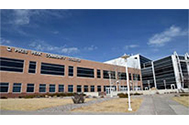
Location: Colorado Springs, Colorado
Tuition Cost: In-state $4,865 and out-of-state $18,227 plus an additional of $2,475 for books and supplies
Student - faculty Ratio: 22:1
The Pikes Peak Community College is a community college located in Colorado Springs, Colorado. The Pharmacy Technician Certificate program offered by the college is a quick way to gain all the necessary knowledge and skills required for any entry level pharmacy position. The program meets all the requirements of the national accreditation of ASHP. With experienced instructors giving personalized attention, the college assures of dedicated support for career opportunities and boasts a placement rate of 94%. With an open admission policy, the Pikes Peak Community College offers credit for life experiences.
#3. Atlanta Technical College
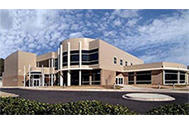
Location: Atlanta, Georgia
Tuition Cost: $5,512 plus an additional of $400 for books and supplies
Student - faculty Ratio: 15:1
Founded in 1961, Atlanta Technical College is a medium public school located in Atlanta, Georgia. With a short Pharmacy Technician Certificate program of 35 credit hours, students can gain knowledge and training which prepares them for a career as a pharmacy technician. On completion of the program graduates will be awarded the Pharmacy Assistant Technical Certificate of Credit. With a placement rate of 95%, Atlanta Technical believes that the strength of Atlanta rests in its citizens, their skills, values and ethics and only a productive and competitive workforce will enable Atlanta to become a commercial hub of the Southeast region.
#4. Spokane Community College - Visit
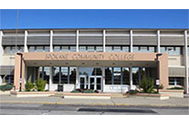
Location: Spokane, Washington
Tuition Cost: $4,348 and an additional $500 for books and supplies
Student - faculty Ratio: 17:1
Spokane Community College is located in Spokane, Washington. The Pharmacy Technician Certificate program offered by this comprehensive educational institution is of 1 year and requires completion of 25 credit hours of required courses. Holding the national accreditation of ASHP, the program is also accredited by the Washington State Board of Pharmacy. As a graduate of this program you will be prepared to work in community and hospital pharmacy settings. Spokane College focuses mainly on development of skills, the right work attitude and job appreciation, attracting students of all ages and ethnic origin. With a faculty receiving positive online reviews, Spokane College has 34% of its undergraduates receive grant or scholarship aid.
#5. El Paso Community College - Visit
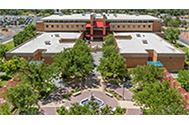
Location: El Paso, Texas
Tuition Cost: $4,197
Student - faculty Ratio: 24:1
Located in El Paso, Texas, El Paso Community College is a public institution. Receiving national recognition for its educational excellence, it opened its doors to students in 1971. The Pharmacy Technician Certificate program is one of the college's popular programs. The 1 year pharmacy technician certificate program will have students attend specialized classes as well as classes in biological sciences and complete clinical rotations. Graduates will be awarded a Certificate of Completion in Pharmacy Technology and they will be eligible to take the PTCB exam. El Paso Community College has an open admissions policy and offers credit for life experiences. 85% of student population is hipanic/latino and 57% of its students are females.
#6. North Dakota State College of Science - Visit

Location: Wahpeton, North Dakota
Tuition Cost: In-state is $4,571 and out-of-state is $11,920 and $1,550 for books and supplies
Student - faculty Ratio: 12:1
Located in Wahpeton, North Dakota, the North Dakota State College of Science offers a Pharmacy Technician Certificate program which is a one year program. It covers courses including, community and institutional practice, handling of sterile preparations, inventory management and record keeping, medical terminology and drug products. Courses in psychology and communication also form a part of the program. With a graduating rate of 100%, the faculty at North Dakota State College is experienced and approachable. On graduating, students become a registered member of the North Dakota Board of Pharmacy and are eligible to take the PTCB exam. The college has an impressive placement rate of 100%, which can be a great positive for students looking to start work straight out of college.
#7. Casper College - Visit

Location: Casper, Wyoming
Tuition Cost: $2,832 for in-state and $7,104 for out-of-state
Student - faculty Ratio: 14:1
Located in the heart of Casper, Wyoming, Casper College is one of the largest community colleges in the region. It offers a comprehensive Pharmacy Technician Certificate program of 9 months. In spite of being a large institution, it is known to provide individualized attention to its students. The program comprising of general and technical courses, strives to impart the skills and knowledge required to meet the goals of a pharmacy technician student. Students are given the opportunity to choose experiential sites that include community and hospital pharmacies, retail stores and compounding pharmacies and drug stores, in Casper and in several locations around the state. 85% of the students graduate the program within the stipulated time.
#8. North Central Kansas Technical College - Visit
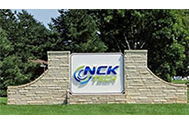
Location: Hays, Kansas
Tuition Cost: $5,567 plus an additional of $1,651 for books and supplies
Student - faculty Ratio: 10:1
North Central Kansas Technical College, located in Hays, Kansas, offers a Pharmacy Technician Certificate program that trains students in pharmaceutical calculations and pharmacy practices, operation and preparation techniques for pharmaceutical products. The college partners with Fort Hays State University, allowing students to enjoy the same benefits offered to Fort Hays State University students. On completion of the program which will take a year, students earn a Pharmacy technician Certificate and are eligible to take the PTCB exam. With a graduation rate of 100%, the North Central Kansas Technical College successfully places 90% of its students, annually.
#9. Hutchinson Community College - Visit
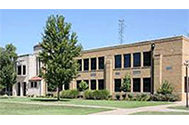
Location: Hutchinson, Kansas
Tuition Cost: $4,420 plus an additional of $1000 for books and supplies
Student - faculty Ratio: 16:1
Hutchinson Community College is a two year community college located in Hutchinson, Texas. The Pharmacy Technician Certificate program it offers is one of the affordable and flexible programs available. The program which begins in Fall is a 33 credit hour program with a curriculum consisting of general and technical core courses. Students are trained to prepare and dispense medications, handle pharmacy operating tasks, professionally communicate with patients and other healthcare workers. A hands-on practicum further adds to the learning experience. Graduates of the program are required to sit for the national certification exam.
Angelina College - Visit
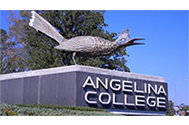
Location: Lufkin, Texas
Tuition Cost: $1,836 plus an additional of $860 for books and supplies
Student - faculty Ratio: 16:1
Founded in 1966, Angelina College is a community college located in Lufkin, Texas. It offers a Pharmacy Technician Certificate program, a nine month program, designed to provide understanding, proficiency and skill in pharmacy technology. The curriculum is designed in a balanced manner, giving you a lab and practicum experience for enhanced learning. With a placement rate of 98%, the program also makes students eligible for getting certified in the preparation of intravenous admixtures, which can be an added advantage. With Angelina College's student friendly policies such as credit for life experiences, employment services, career counselling and remedial services, students can enhance their learning and thus have a productive educational outcome, what with 83% of its graduates successfully completing the program within the stipulated time.
Admission Requirements
Although each school will have its specific admission requirement, we have tried to list requirements which are generally to be fulfilled for admission in most of the colleges. The following are the requirements to get yourself enrolled into a pharmacy technician certificate program:
• High School graduate or G.E. D.
• Have a college cumulative GPA of 2.0
• Be 18 years of age before completion of the program
• Demonstration of success in science and math courses, from high school or college. (It is recommended that you take algebra and chemistry while in high school)
• Drug screen and criminal background check must be negative. No felony convictions.
• Provide current CPR certification
• Immunizations
• Physical Examination and health tests
• Provide evidence of current health insurance and maintain it to stay enrolled in the program.
Curriculum Of The Program
The curriculum for the Pharmacy Technician Certificate program is designed to help you acquire all the necessary skills and knowledge for you to work as a pharmacy technician in a real-time pharmacy setting. The internship/externship which is part of the program lets you gain hands-on experience in various pharmacy settings. A certificate program, for a full time student takes about 9 to 10 months to complete, i.e. two semesters. The number of courses required varies, totaling to 35 to 40 credits.
Core and General Courses which form a part of the Certificate program curriculum:
| Course Title | Course Description |
| Orientation to Pharmacy Practice | You will be orientated about the work of a pharmacy technician and the way it complements to the role of a pharmacist. You will be introduced to current medication delivery system, medication laws, standards and regulations that are required to be adhered to. Some schools may even include fieldtrips to pharmacies to enhance learning. |
| Pharmaceutical Calculations | You will be taught how to perform pharmaceutical calculations for dosage determinations solution preparation, covering topics such as ratio and proportion, dilution and concentration, milliequivalent, units and intravenous flow rates. |
| Medical Terminology | You will learn about words, anatomical terms and body systems used in the pharmaceutical system. |
| Pharmacy Operations | Learning to handle operations at the pharmacy which includes, interpreting and processing prescriptions, maintaining electronic record of patient medications, processing third part insurance claims, managing inventory, labelling of medications and patient billing, forms a part of this course. |
| Pharmacology | You will gain knowledge about common disorders and diseases of the human body and the common drug reactions and interactions. |
| Advanced pharmacy operations | You will learn how to apply pharmacy math skills to calculate the dose required to compound sterile and non-sterile compounds. The course lays emphasis on aseptic technique, compounding non-sterile products, handling chemotherapy agents, interpreting and labelling of compounded orders. |
| Medical Law and ethics | Studying laws and ethics which form a part of the federal legal system relevant of the healthcare environment will form a part of his course. Patient privacy, fraud abuse and professional practice law will be covered. |
| Computer Applications | Basic computer operations including, word processing, spreadsheet, spreadsheet will be taught. |
| Introduction to Communication | This course will help develop communication skills in personal, social and professional contexts in verbal and non-verbal manner. |
| Externship/Internship | You will apply the knowledge and skills you have learnt in a workplace setting. You will handle pharmacy operations, prepare and dispense medications, enabling you to gain hands-on work experience. |
What Will I Learn In The Pharmacy Technician Certificate Program?
The following will be the learning outcome on successful completion of the program:
• To be able to accurately interpret prescriptions.
• Familiarity with brand and generic drug names.
• Gain fundamental knowledge of medical terminology.
• To be able to process a prescription by interpreting correctly, selecting the drug, packaging, labelling and dispensing the medication.
• Learn about the federal, state and local laws, regulations and apply them to your pharmacy practice.
• Perform math function, dosage calculation and compounding techniques.
• Learn to communicate effectively in verbal and written manner with all necessary parties including, co-workers, patients and other healthcare professionals.
• You will be well prepared to take the PTCB certification exam.
Earned My Certificate Program What Next?
After graduating from a pharmacy technician certificate program, you are now equipped with the necessary knowledge and skills to start working as a pharmacy technician. However, most states require you to acquire a license/registration before you start work. Find out if you need to apply for a license or registration from your state board of pharmacy.
A. Career Opportunities
As a pharmacy technician certificate program graduate you have an array of opportunities in terms of work settings. You can work in retail as well as hospital settings, including:
• Retail pharmacies
• Health systems
• Insurance
• Local and state government
• Public and Community Health
• Hospitals and clinics
• Research laboratories
B. Educational Advancement
After completing your certificate program if you wish to advance your education there are varied options that are available to you.
• You can consider doing a specialization in compounding or handling of chemotherapy drugs and substances used for nuclear medicine.
• You can go back to school and earn an associate degree in Pharmacy Technology, which will take two years to complete.
• Studying to become a pharmacist, nurse or doctor can also be considered.
C. Eligible to take the certified examination
The first thing you should do as soon as you complete your certificate program is take the PTCB exam and earn your nationally recognized certification. The ExCPT is also an exam you can take, however the certification thus earned by the NHA is not widely accepted.
D. What is the career outlook?
With the expanding pharmaceutical industry and rise of lifestyle diseases, coupled with an aging population the demand for pharmacy technicians, nationwide is growing. The BLS projects a job growth of 12 percent from 2016 to 2026 which is faster than any allied healthcare occupation.
How Much Does A Pharmacy Technician With A Certificate Program Make?
While an entry-level pharmacy technician can earn anywhere between $19,570-$34,186, after completing the certificate program you expect to earn anywhere between $21,431-$39,811, annually.
| Career Level | Annual Salary |
| Entry Level | $19,570 - $34,186 |
| With a Certificate Program | $21,431-$39,811 |
| National Annual Salary | $32,170 |
Also Check Out